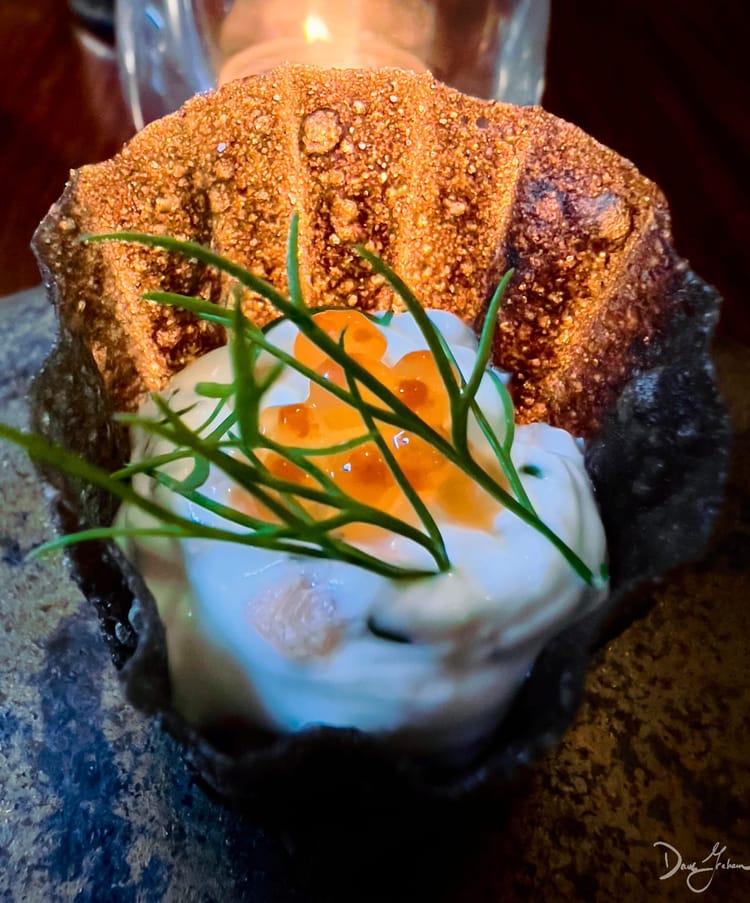A Beginning, Part 3: Social Inclination

Something about a candy bar and woman named Hazel

And so it is again; we step foot into the past with a view of what once was. These words, taken from my father’s typewriter at the time, were rife with memories of a different person, presentation, and personality. Some of his old life bled into mine, and I’ll elucidate in my explanation, but much was uniquely his own quiet box of thoughts and feelings. I don’t imagine for a moment that my father, in an effort to gain a child, would’ve been fully forthright and honest about his actual feelings, but he certainly presented well. Perhaps that’s my framing of his actions in the decades that followed these words coming to bear, but the man I knew could twist words and experiences like no other. And that was both his poetry and his demagoguery. Funny how both can exist together in the same skin.
Charles’ Story:
We were not a particularly outgoing family socially and during these preschool years about the only person I really got to know was my father’s grat [sic] aunt — Aunt Hazel. She is a typical old maid and lived in upstate New York. Each winter she came to live with my father’s mother. Although we love her dearly, she can be somewhat bossy in her best shcool [sic] marm fashion and I am told one day when I was 4 that I lured her into the milkhouse, firmly told her to “stay” and then promptly locked her in to avoid that kind of attitude.
A family activity we often engaged in at this time was the Sunday afternoon drive. After church, we‘d all load into the car and drive for hours around the countryside looking at this or that piece of land. Frequently there was a Three Muskateer [sic] treat.
My Explanation:
There’s quite a bit to unpack from these two simple paragraphs. On one hand, the introduction of a new character, Aunt Hazel, and on the other, a window into one of the underlying character traits that my father would persist through his life: subterfuge.
Aunt Hazel demands her small sidebar as she outlived my paternal grandfather and the inevitable “fog of war” accompanying most children’s early experiences. She was firmly ensconced up a steep stairway in the old Victorian farmhouse, with its creaky wooden stairs, dimly lit environment, and the distant cast of daylight if you squinted hard enough. Her room sat at the proximal end of the second floor, just down the hall from an expansive bathroom, complete with a white enamelled clawfoot tub, a cot with exposed steel springs, and enough floor space to comfortably void in peace. Her door would gently creak as you opened it, and tucked in a chair near the window of her room, Aunt Hazel would sit, wrapped in a blanket, old newspapers close by, watching as time hurried by.
By all estimation, she was in her 90s when I met her. In my recollection, she was a synthesis of the round glasses of Ben Franklin’s caricature, a school marm (as alluded to by my father’s words above), and the shortest woman you’ve ever seen. Her voice was ancient yet tremulous as though a viola had been plucked, warm yet with a timbre of treble harshness. She had lived through time with enough abandon to have a history unknown to all but the chosen few, and from her window, she kept a watchful eye.
She would deign to give me stamps and cuttings from newspapers, stories of the world at large, and a unique perspective on what she felt was valuable. These were more than trinkets to her; they were an embodiment of a world she couldn’t really participate in anymore. She’d ask questions, and given her attenuated hearing, she wouldn’t necessarily wait for a response back or ask for clarification. She lived through my childish responses with an understanding of brokered time.
Aunt Hazel was ancient to me then, a wizened teacher of a world from “before.” Today, given my mother’s journey towards the setting sun, I can appreciate her much more.
As for subterfuge and guile, my father carried these traits with him in spades throughout his later life. I don’t feel that there’s any level of kindness in relaying some of his more “broken” moments here. The memories of the moments when the tarnish broke through his polished exterior are, perhaps, best left for the dark hallways of my more nuclear family’s minds. But I can note that the inner workings of a child who would lock Aunt Hazel in the milkhouse are the same that would hide affairs and dalliances across decades, would use words and money as weapons, and would seek any opportunity to render to himself what Caesar didn’t deserve. It’s a far cry from a loving, involved parent, though, in my personal experience, some aspects of him enjoined more positive feelings. However, his legacy in my mind wasn’t one of convivial kindness or care but rather of homeostatic isolation punctuated by moments of brilliance or entropy.
Almost glibly, my father ends today’s writing with a homage to a specific candy that, through the balance of his life, remained a constant: a Three Musketeers bar. He would rarely eat these, but in reference to this autobiography brings enough focus to the simple pleasure that these candy bars represented. When given no other options, he would opt for the Three Musketeers bar, which seemed to sufficiently slake whatever thirst he had for sugar or dessert.
This is a long journey that we’re taking together. Bit by bit, piece by piece, page by page. It’s not something I feel can be digested in parts larger than a few paragraphs at a time, and perhaps I’m reliving my history just as much as I am viewing his. These moments of reconciliation, the man behind the myth, or perhaps the myth of this particular man, are salient to my story. I grew up under his watchful eye, adopted into a family that carried its own stories, traumas, and history and, in turn, engaged in mine. My own story contains twists and turns, not unlike my father’s, but that’s something for another day, another retelling.
Perhaps these moments, even when considered from your own framing, are worth spending more time soaking in. Consider your own heritage, your own paths, your own convolution as you’ve grown. Where do you find yourself treading similar ground as your ancestors? Where do you diverge? Where does the shadow from their legacy cause the darkness to grow, and where have you let the light emerge? Questions, all, for your own consideration and time.
May it ever be so.





